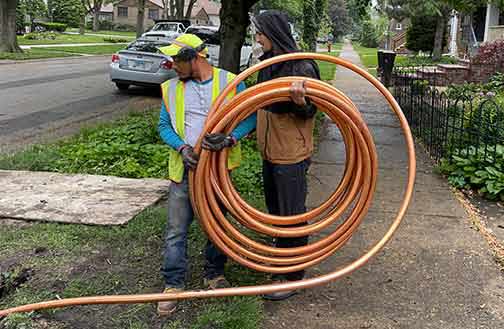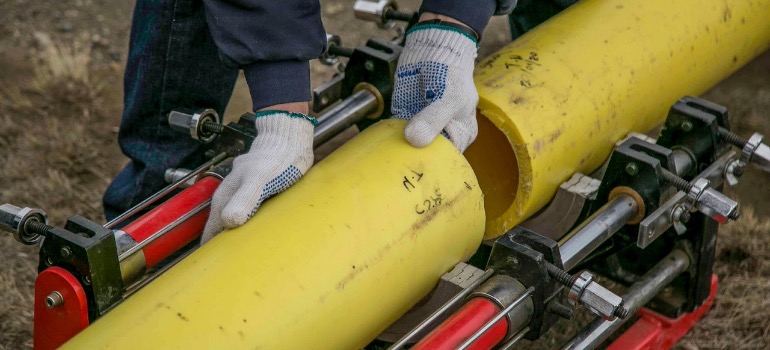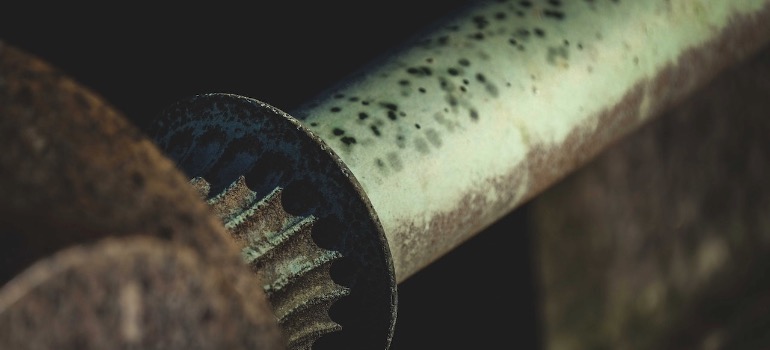
Replacing water lines in your Chicago home can be a significant undertaking, but it is often necessary to ensure the efficiency and safety of your plumbing system. If you are dealing with old pipes that have deteriorated over time or you want to upgrade to more modern and durable materials, understanding what to know before starting the project is crucial. Below we will guide you through the essential considerations to keep in mind when replacing water lines in your Chicago home, providing you with the knowledge to make informed decisions and ensure a successful outcome.
Assessing the Need for Water Line Replacement
Before deciding to replace your water lines, it is essential to assess the need for replacement. Several signs can indicate potential issues with your current pipes, including:
- Low water pressure
- Frequent leaks
- Discolored water
- Strange odors
If you observe any of these signs, it is crucial to speak with a professional plumber to determine if a replacement is necessary. They will be able to assess the condition of your water lines and provide expert advice on the best course of action.
Understand the Different Types of Water Pipes
When replacing water lines in your Chicago home, it is important to understand the different types of water pipes available. The common options include:
- Copper pipes: Copper has been a popular choice for water lines due to its durability and resistance to corrosion. However, it can be more expensive than other options.
- PEX pipes: Cross-linked polyethylene (PEX) pipes have gained popularity in recent years due to their flexibility, affordability, and ease of installation. PEX pipes are also resistant to freezing and bursting.
- Galvanized pipes: Galvanized pipes were commonly used in older homes but have fallen out of favor due to their susceptibility to deterioration and reduced water flow over time.
Understanding the pros and cons of each type will help you make an informed decision based on your budget, preferences, and the specific needs of your home.
Consider the Impact on Water Quality
When replacing your water lines, it is essential to consider the impact on water quality. Different materials can have varying effects on the taste, odor, and overall quality of your water supply.
If you have concerns about water quality, especially if you’ve experienced issues in the past, you may consider installing a water filtration system or consulting with a water quality professional. They can recommend appropriate measures to ensure clean and safe drinking water.
Obtain the Necessary Permits
Before starting any water line replacement project, it is essential to obtain the necessary permits from the local authorities. Chicago, like many other cities, requires permits for plumbing work to ensure compliance with building codes and regulations.
Working without the proper permits can result in hefty fines and potential legal complications. Hiring a licensed plumber will typically ensure that they take care of the permitting process on your behalf, giving you peace of mind.

By selecting a reputable and experienced plumber, you can have confidence in the quality of their workmanship and the longevity of your new water lines.
Hire a Professional Plumber
Replacing water lines is a complex task that requires the expertise of a professional plumber. While it may be tempting to take on the project yourself to save money, hiring a professional is strongly recommended.
A licensed plumber will have the necessary knowledge and experience to handle the job safely and efficiently. They will also be familiar with local plumbing codes and regulations, ensuring that the installation is up to standard.
When choosing a plumber, it is important to:
- Do thorough research and read customer reviews
- Verify their licensure and insurance
- Request multiple quotes to compare prices
- Ask about warranties or guarantees on their work
By selecting a reputable and experienced plumber, you can have confidence in the quality of their workmanship and the longevity of your new water lines.
Plan for Disruption and Restoration
Replacing water lines in your Chicago home can cause some temporary disruption to your daily routines. It is important to plan for this and make necessary arrangements to minimize inconvenience.
Discuss the project timeline with your plumber, including estimated start and completion dates. This will allow you to make any necessary preparations, such as arranging alternative water sources or adjusting your schedule accordingly.
Additionally, it is crucial to discuss the restoration process with your plumber. Will they be responsible for repairing any damages caused during the installation? Will landscaping or other areas of your home be affected? Clarifying these details in advance will help ensure a smooth and hassle free experience.
Budgeting for the Project
Replacing water lines is an investment in the long term functionality and value of your Chicago home. It is essential to budget for the project accordingly to avoid any financial surprises.
When preparing your budget, consider the following expenses:
- The cost of materials
- Professional labor fees
- Permit fees
- Any additional plumbing upgrades or improvements
Obtaining multiple quotes from different plumbers will help you get a clearer idea of the overall costs involved. Keep in mind that while it may be tempting to opt for the lowest price, the quality of work and materials should be your top priority.
Maintain Regular Plumbing Inspections
Once your water lines have been replaced, it is crucial to prioritize regular plumbing inspections and maintenance. By identifying and addressing potential issues early on, you can prevent costly repairs and ensure the longevity of your plumbing system.
Schedule periodic inspections with a professional plumber who can assess the condition of your pipes, identify any leaks or vulnerabilities, and perform necessary maintenance tasks. Additionally, practicing proactive measures such as avoiding harsh chemicals and being mindful of what goes down your drains can help prevent future plumbing problems.
Wrapping It Up
Replacing water lines in your Chicago home is a significant undertaking that requires careful consideration and planning. By assessing the need for replacement, understanding different pipe materials, considering water quality, obtaining permits, hiring a professional plumber, planning for disruptions, budgeting appropriately, and prioritizing regular maintenance, you can ensure a successful water line replacement project.
Remember, when it comes to your home’s plumbing system, investing in quality materials and workmanship is crucial for long term efficiency and peace of mind.



